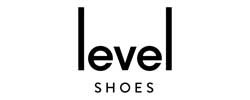Master the art of smart shopping: Your complete guide to surviving sales events like a Pro!

Sales events are a shopper's haven, with deep discounts on anything from electronics to fashion and home goods. But smart shopping through these sales requires preparation, patience, and strategy to maximize the bargains without breaking the bank. Whether it's Black Friday, Ramadan sales, end-of-season clearances, or flash sales, preparation, patience, and strategy are the keys to surviving these sales events like a pro!. Most consumers are also victims of impulse shopping, later regretting what they have purchased. This is a guide to assist you in learning how to make the most out of savings, find the best offers, and stay clear of pitfalls associated with sales activities. With tips on how to compare prices, apply coupons properly, and get the timing of your shopping just right, these sales become gold mines for inexpensive shopping. Here at this blog, we will take you through all the steps involved in shopping intelligently during sales events so you can pick the best deals without exceeding your budget from Grabdeals
Planning ahead: Pre sale research
The most common mistake buyers make is charging into a sale without any kind of research beforehand. The best bargain shoppers begin planning weeks in advance by comparing prices, reading brands, and determining the items they really need. Prior to a major sale event, spend some time surfing various online stores and save the items you desire. Most retailers raise prices ahead of a sale and then provide so-called "discounts," which are not as great as they appear. By monitoring prices ahead of time, you can identify a real bargain when you spot one. Also, sign up for newsletters of the stores you like to receive early notification of sales, coupon codes, and flash sales. Several online stores also offer VIP membership or loyalty programs that provide early bird discounts to members. With a bit of pre-sale planning, you'll be able to go into the sales event feeling secure knowing what's a good buy and what isn't.
Creating a shopping list: Putting your priorities first
A shopping list is your greatest protection against impulse purchases. Sales events provide a sense of urgency with limited-time offers, which can tempt you to purchase items you don't need. Before the sale actually starts, have a definitive list of what you really need, listing must-haves before niceties. Break down your list into various categories, for example, electronics, fashion, household necessities, or cosmetics. In case you're looking for a particular occasion, for example, back-to-school shopping or Christmas gifts, make it so. Remaining on a list prevents mindless expenditure and ensures that you're getting maximum value for money. Also, set aside a budget within each category to prevent overspending. When sale time comes along, consult your list to ensure you remain focused and resist being lured into shiny deals for things you had no intention of purchasing. Properly planned lists are the answer to making thoughtful and informed sales purchases.
Timing your purchases: When to buy for maximum discounts
Not all bargains are the same, and shopping at the right time in a sale can save you thousands. Most sale events are phase-based, with early-bird discounts, peak discounts, and last-minute clearance sales. Early access sales are your best option if you need popular items like smartphones, game consoles, or designer fashion labels. However, if you’re shopping for general household items, clothing, or accessories, waiting until the later stages of a sale can sometimes yield bigger discounts. Some stores offer flash sales at specific hours of the day, so set alerts and be ready to grab those limited-time deals. Also, consider shopping during off-peak hours, such as early mornings or late nights, to avoid website crashes or stock shortages. By timing your buying strategically, you can save money while getting the best deals before they are no longer available.
Comparing prices: Getting the best deal
One of the tricks that sellers use is marking up original prices so that the discounts appear to be larger than they really are. That's why price comparisons across various outlets are important before you buy. Most online shopping sites and browser extensions enable you to monitor price history and compare prices at different stores in real-time. Always compare the same item on various websites to find out which store has the best offer, including shipping charges and other benefits like free returns. Some stores provide price-match promises, where they will match a lower price from a competitor if you inform them about it. Also, examine if combo or bundled offers have more value to offer than if you were purchasing them separately. While a single store might sell one item with a discount, another store may have a buy-one-get-one-free offer and save you even more in the long term. By making efficient price comparisons, you are really getting the optimum deal during the Black Friday Sale.
Taking advantage of coupons and cashback offers for maximum savings
Although sales event discounts are alluring, smart shoppers take it one step further by combining coupons and cashback deals for extra savings. Most online retailers permit the application of promo codes on top of sale prices, greatly reducing the overall cost of your purchase. Always look for active coupon codes before checkout, which you can usually obtain from deal websites, brand newsletters, or social media pages. Further, most banks and payment gateways also provide cashback offers when you pay using certain credit or debit cards. If you are going to shop through an e-commerce site, make sure whether they offer loyalty points or rewards schemes which can be used for additional discounts. Exclusive app-only discounts are sometimes provided by certain retailers as well, so downloading their mobile apps may help you access more savings. By linking sale discounts to coupons and cashback promotions, you can make your budget go even further and get the best out of any sale event.
Steering clear of Impulse buying: The traps of sales hype
Sales promotions are intended to induce a state of urgency, employing words such as "limited-time offer" and "only a few in stock" in order to prompt shoppers into snap decisions. This can result in impulse buys that you will later regret. The secret to preventing impulse buying is adhering to your pre-planned shopping list and resisting the temptation of savoring the thrill of discount prices. Always pause to consider whether you truly need the product or whether you're purchasing it because it's discounted. Retailers frequently engage in marketing strategies such as bundling items together or providing mystery discounts to entice consumers to spend more. If you are feeling pressured to purchase something quickly, take a break for a few minutes and check if the purchase is worth making. Savvy shopping is not about purchasing what does not bring value to your life but rather accumulating things that might end up not being utilized.
Both in-store and online shopping have pros and cons during sale events. Online shopping provides the comfort of viewing several stores in the home, convenient price comparisons, and online-only sales discounts. But peak traffic during special sale events can cause websites to be sluggish, payments to fail, or stock to sell out rapidly. Conversely, shopping at stores enables you to touch, feel, and test products physically, as well as skip potential shipping delays. Yet, at the same time, it carries the disadvantage of long lines, congested shops, and running out of products. The optimum strategy is the hybrid model buy high-in-demand technology gizmos or shortage items online to have them fast and shop at stores for garments and household stuff to guarantee quality. Knowing the advantages and disadvantages of both approaches assists you in making knowledgeable choices and maximizing your shopping experience during sale events.









